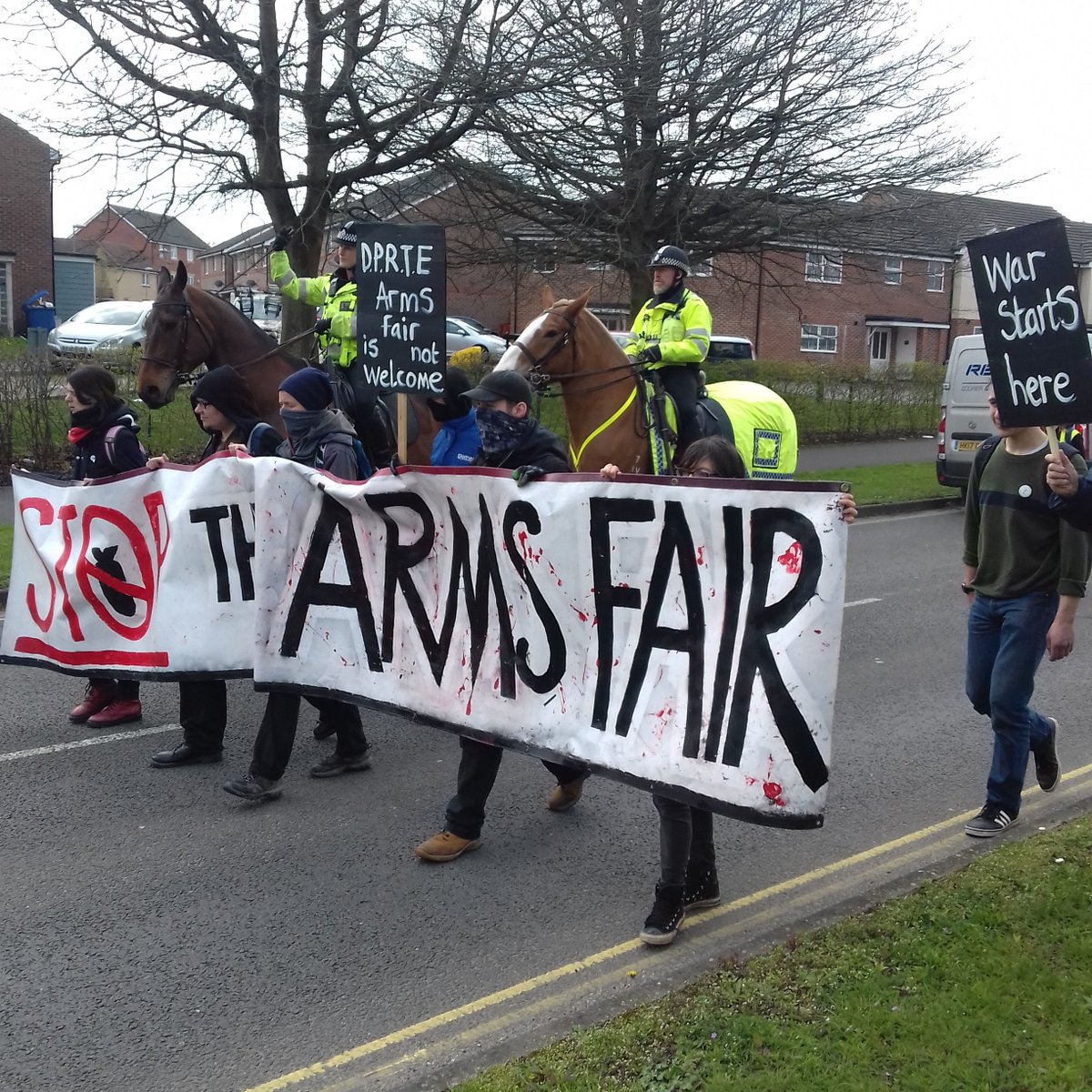By Tom Anderson
Two campaigners who staged an eight-hour rooftop occupation at the headquarters of controversial security company G4S were acquitted of aggravated trespass by a district judge (DJ) at Horsham Magistrates Court on Wednesday 21 August.
The pair, one from No Borders UK and the other from the Boycott Israel Network, staged the rooftop occupation on 2nd July 2012. The protest was aimed at highlighting the security giant’s track record and to question whether the company was a good candidate for future public contracts. For example, G4S provide equipment and services to Israeli prisons where Palestinians are held in violation of international law. G4S also provided the guards for the fatal deportation of Jimmy Mubenga in 2010. Earlier this year, an inquest jury ruled Mubenga’s death was an “unlawful killing”. For more info on G4S see our company profile.
Nero
The defendants had required the CPS to prove the lawfulness of G4S’ business as part of their defence. However, DJ Crabtree ruled that G4S should only have to prove that its business is “apparently lawful”. This ruling is based on the judgement in the case of Nero Vs the Department of Public Prosecutions (DPP). Jessica Nero, along with three others, was charged with aggravated trespass over occupations of the Ahava cosmetics store in London, a campaign that eventually forced the shop to close.
In that case, Nero and her co-defendants had argued that Ahava’s business was unlawful because the company’s main factory was situated in a settlement in occupied Palestine. The defendants were convicted and appealed to the High Court. In the appeal, two of the defendants had their conviction quashed, but the other two convictions were upheld by Lord Justice (LJ) Laws on the basis that Ahava should only have had to prove “apparent lawfulness” for the offence to be proved.
The case of Nero has had wide-ranging consequences for anti-corporate campaigners seeking to resist corporate criminals. It has been used in recent cases of anti-arms trade activists to silence defences based on the lawfulness of corporate behaviour. LJ Laws’ judgement in Nero is scheduled to be appealed to the Supreme Court in November this year.
On the roof
The latest case was opened with Crown Prosecution Service (CPS) witnesses recounting how activists used a ladder to climb from the fire escape of the G4S building to occupy the roof. Banners were unfurled which read “G4S profits from: Israeli Apartheid, Prison Slavery, Deadly Deportations” and “G4S Suppresses Freedom for Palestine”. G4S security staff confirmed that the office in Manor Royal in Crawley was the global Group Headquarters for the security multinational.
The CPS, even after the judgement of LJ Laws, still had to prove that the company was acting ‘apparently lawfully’. Initial approaches by the CPS to G4S management to acquire a statement proving lawfulness had been unsuccessful. The best the prosecution could come up with was the Facilities Manager for the Manor Royal Building, who conceded that she had no knowledge of the lawfulness or otherwise of the majority of G4S’ business: save for the day to day running of the building. Defence barristers made a half-time submission of ‘no case to answer’ on the basis that she was not capable of providing evidence of G4S’ apparent lawfulness.
DJ Crabtree invited the CPS to produce further evidence and the next day Adam Mynott, G4S’ director of PR and Media Relations appeared for the prosecution. Under cross examination, it became clear that Mynott (an ex-BBC correspondent) was not in a position to testify to the lawfulness of the company’s various activities; Mynott’s only knowledge of the lawfulness of the business was passed on from his superiors, he did not sit on board meetings and could not answer when asked what steps G4S had taken to ensure it operates lawfully. The judge nonetheless accepted his assertions at face value that G4S was an ‘apparently lawful’ business.
Mynott also confirmed that the Crawley office, at the time of the demonstration on 2nd July 2012, housed the finance, communications and treasury department of the company and was the “heartbeat of the organisation” with, he said, overall responsibility for the work of all G4S’ subsidiaries: “The Crawley office runs the group and the regional offices report to us”. When questioned about G4S’ contracts with the Israeli Prison Service (IPS) Mynott said that these contracts were between the IPS and G4S’ “Israeli company” but conceded that the Group Headquarters in Crawley had overall responsibility.
Both defendants gave evidence that their action had been intended to raise awareness of G4S’ criminal activities and that it was intended as part of a wider campaign against the awarding of public sector contracts to G4S.
After three days, DJ Crabtree acquitted the defendants on the basis that they had not intended to cause disruption to the company. His ruling was partly based on the judgement in the case of the activists who occupied Fortnum and Mason during the 26th March 2010 mass demonstrations.
In a joint statement, the two activists said:
“We are obviously happy that we were acquitted. However, we are quite disappointed that a court was, yet again, not willing to scrutinise the wrong doings of a controversial company. This is exactly why we and other concerned people like us feel they have to take direct action to address corporate crimes.”
For more information see http://stopg4s.net



0 Comments